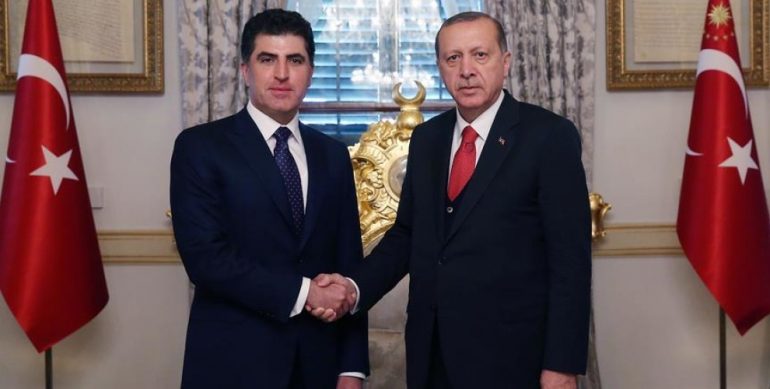Editor-in-chief of Spee Media detained in Sulaymaniyah
Protests in northern Baghdad demanding better services
This evening, dozens of residents in the Sabaa El-Bour area of northern Baghdad took to the streets to voice their discontent with the inadequate public services in their community.
According to Al-Sumaria News, the protesters are urging Prime Minister Muhammad Shia'a al-Sudani to personally visit their area and witness the dire state of the local services. Their demands include the urgent need for the completion of the local hospital, improvement of sewage systems, road paving, and the expansion of Dra'a Tigris road under safe conditions.
Occasionally, protests in Baghdad reflect public frustration with inadequate services and governance, prompting calls for improvements and accountability.
Traffic Police statistics and alarming trends
Kurds among those stranded on the Polish-Belarusian border – AFP
Iraq's national security advisor affirms shared security with Iran
Ex-Sulaymaniyah Prosecutor General: Judicial power subjugated by executive power in the Kurdistan Region
Criticism continues to mount following yesterday's Judicial Council session, with a former prosecutor general contending in VOA that in the Kurdistan Region, real power resides solely in the hands of the Executive. Naz Nouri, the former prosecutor general of Sulaymaniyah, cited the decisions made by the Judicial Council as evidence, asserting, "We are neglecting our national interests and instead serving political parties. The seeds of political conflict were planted long ago, and we are now facing the repercussions."
Characterizing the judicial power as restricted, she holds the belief that "the judiciary in the Kurdistan Region cannot enforce any laws without the approval of the executive authority."
Nouri, who resigned from her position due to her outspoken remarks on the state of the judiciary in the Kurdistan Region, is of the view that political parties "have set aside national interests and are solely focused on their own party interests."
Former Gorran MPs React to judicial council move
An even more severe statement came from Latif Sheikh Mustafa, another former MP of Gorran in Iraq and a former judge. He described the Council's action as "the final nail in the coffin of the judiciary in the Kurdistan Region." He further elaborated on the event, claiming that the "KDP faction within the Judiciary Council convened and made decisions without the PUK faction."
He gave a deeper analysis of the situation regarding the judiciary, arguing that in reality, there has been "no true judiciary" since 2018, and the recent actions of the Judiciary Council have only made this clearer. As he noted earlier, the division of the Court of Cassation between the KDP and PUK was bound to lead to this result.
Unsurprisingly, the PUK seems unhappy about the Kurdistan Judicial Council swearing in two new members of the electoral commission.
Nechirvan Barzani, the President of the Kurdistan Region, was among the first to congratulate Turkish President Recep Tayyip Erdogan on his re-election. On 'behalf' of the people of the Kurdistan Region, Barzani extended his congratulations—his second to Erdogan since 17 May.
Morning briefing
- As the preliminary Turkish presidential election results came in, the president and prime minister of the Kurdistan Region both promptly conveyed their congratulations to Recep Tayyip Erdogan for his victory. This sentiment was echoed by other leaders of political parties in Kurdistan. These congratulations come amidst a dispute with Baghdad that leaves the status of Kurdish oil exports through Turkey uncertain.
- Today marks the launch date of the controversial point-to-point speed cameras in Sulaymaniyah province. During the initial phase, 24 traffic enforcement cameras along the highway from Sulaymaniyah's Tasluja to Dukan district will be activated. While some drivers view these cameras as a means to generate additional fines, the Traffic Police maintain that they are intended to reduce speeding.
- The independence of the Kurdistan judiciary is being called into question (again). Despite a 'failure to reach quorum', the Judicial Council proceeded yesterday to officially swear in two new members of Kurdistan's electoral commission. Today, we will provide further analysis and quotes from legal experts on this matter.
- Shifting our focus away from the Kurdish Region, a security delegation from Iraq, led by Qasim al-Araji, the Iraqi National Security Advisor, arrived in Tehran today. This visit follows Iranian warnings that cross-border attacks will continue unless Baghdad and Erbil take measures to secure the borders and disarm Iranian-Kurdish opposition groups. Araji's visit to Tehran comes on the heels of a meeting in Sulaymaniyah on Saturday, during which border security with Iran was discussed.











